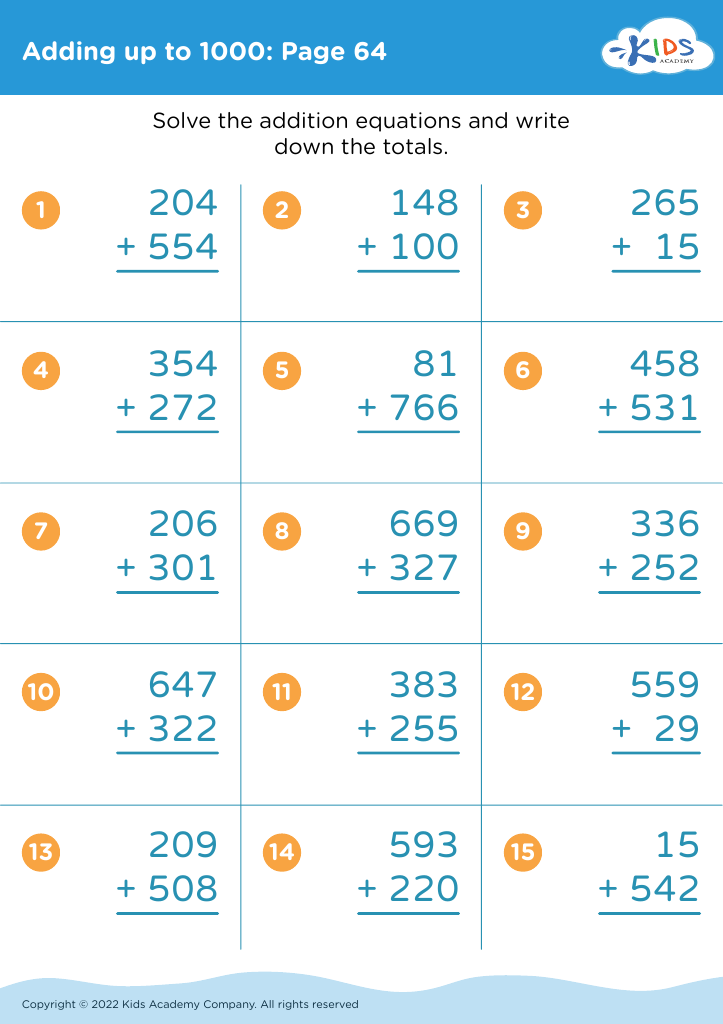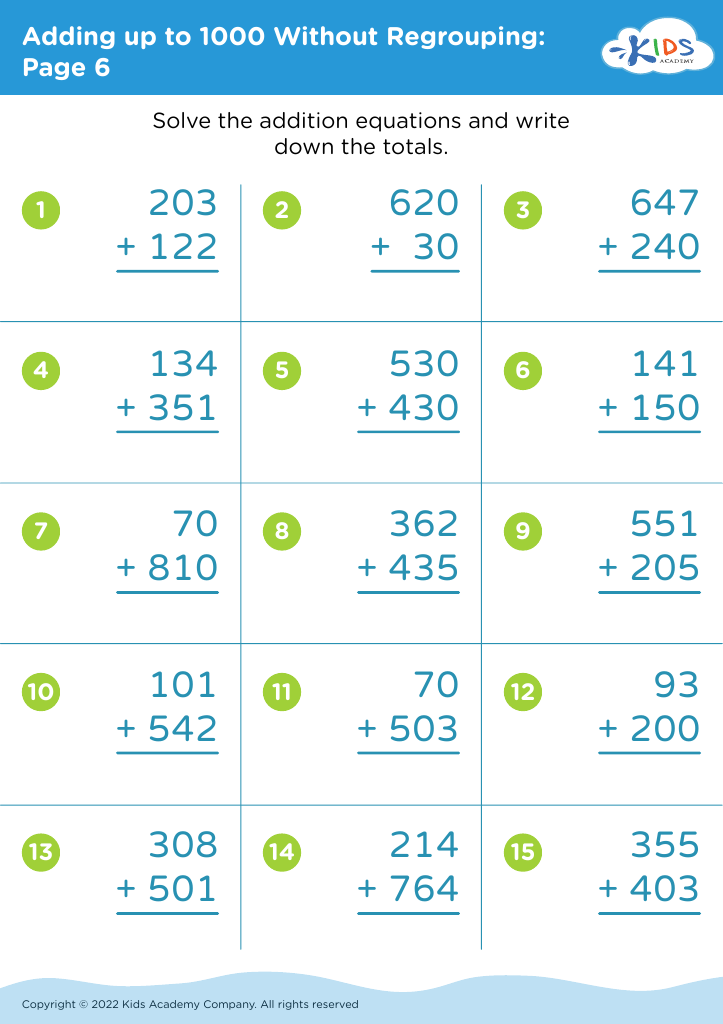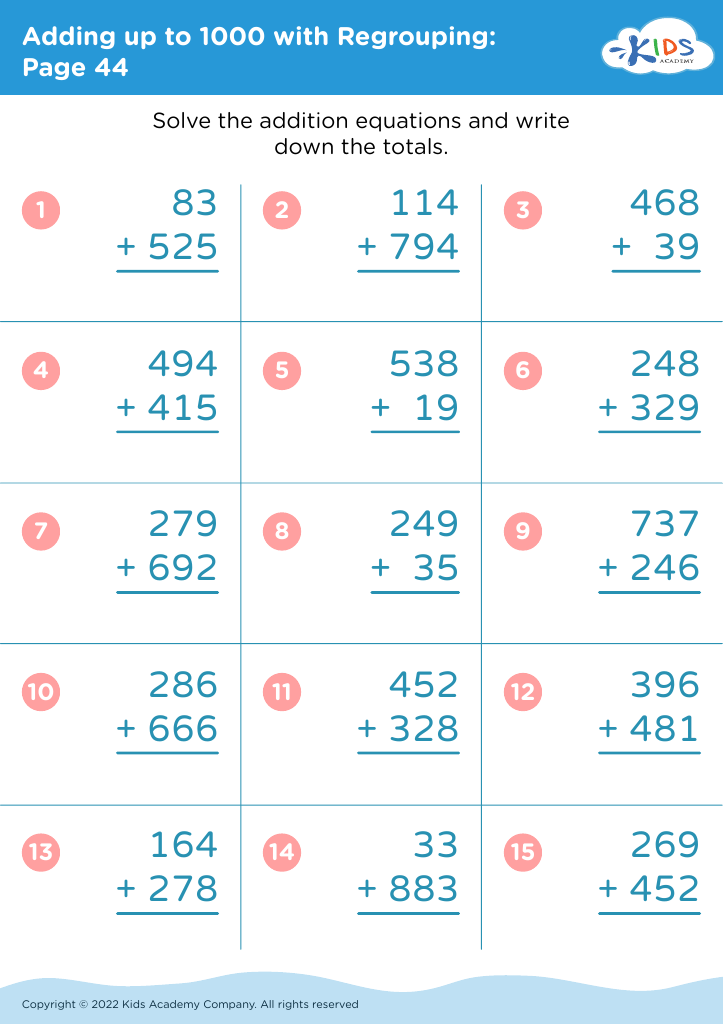Understanding sequencing Math Worksheets for 9-Year-Olds
3 filtered results
-
From - To
Explore our "Understanding Sequencing Math Worksheets" designed specifically for 9-year-olds! These engaging worksheets help young learners grasp essential sequencing skills crucial for problem-solving and logical thinking. Through a variety of fun activities, kids will improve their understanding of ordering events, patterns, and sequences, enhancing their overall math competence. Each worksheet is carefully crafted to cater to different learning styles, ensuring an enjoyable and effective learning experience. Whether used in the classroom or at home, our resources support curriculum standards and foster a love for math. Dive into our collection today and watch your child's confidence and skills flourish!
Understanding sequencing in math is crucial for 9-year-olds, and both parents and teachers play a vital role in fostering this skill. Sequencing involves recognizing patterns and the order of operations, which lays the foundation for more complex mathematical concepts. At this age, children typically start engaging with multiplication, division, fractions, and problem-solving strategies. A firm grasp of sequencing helps them manipulate numbers effectively and reason logically.
Parents and teachers should care about this for several reasons. First, it enhances critical thinking skills, enabling children to approach problems methodically and make connections between different mathematical concepts. This encourages confidence in their abilities, which is essential for maintaining their interest in math.
Second, sequencing in math fosters self-discipline and organizational skills. Learners who can sequence tasks correctly are better equipped to tackle word problems and real-life scenarios that necessitate a step-by-step approach.
Additionally, a solid understanding of sequencing supports independent learning, empowering children to explore math on their own. Ultimately, promoting sequencing skills not only aids immediate learning objectives but also prepares students for future academic success, emphasizing that math is both a practical and an engaging subject.




















